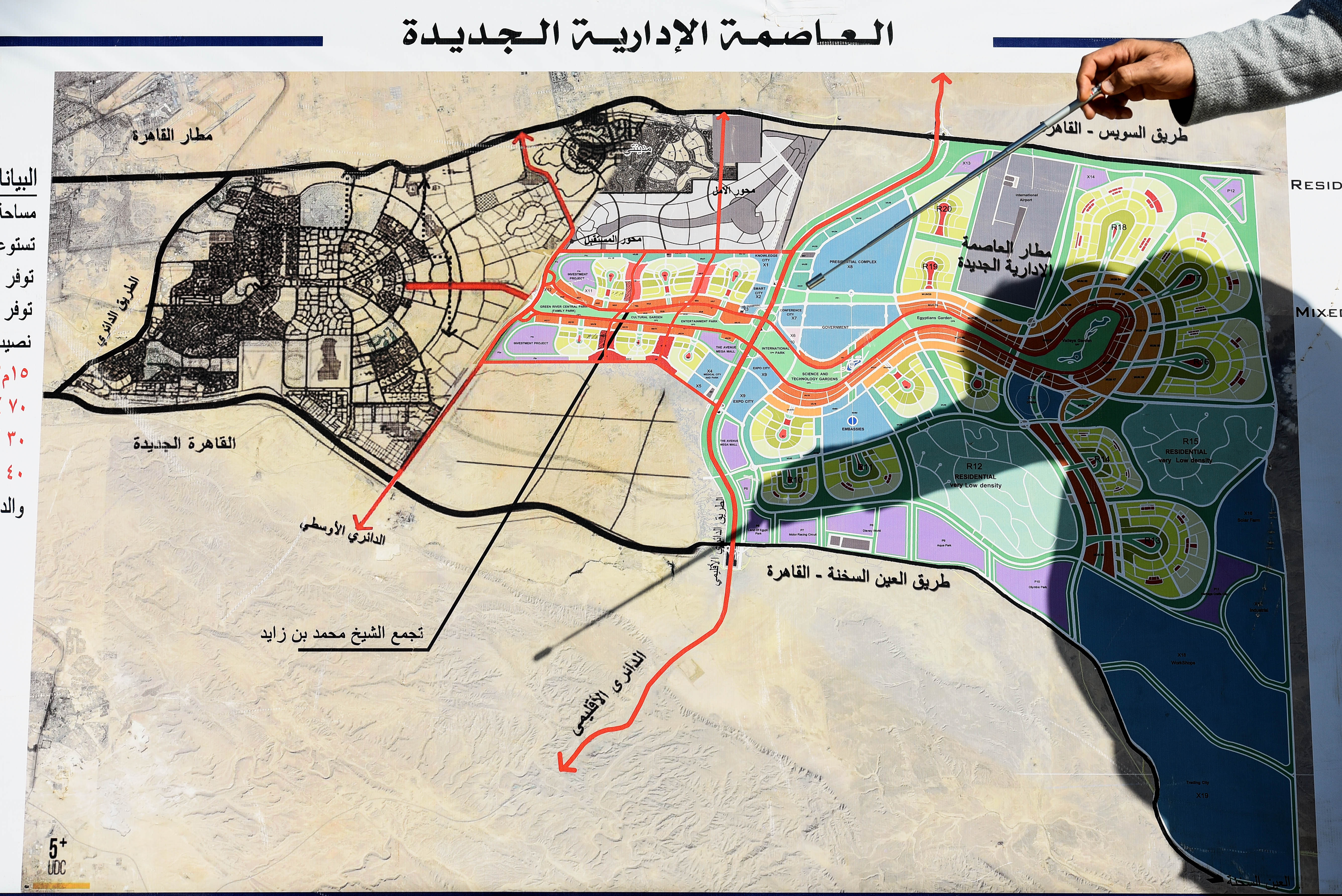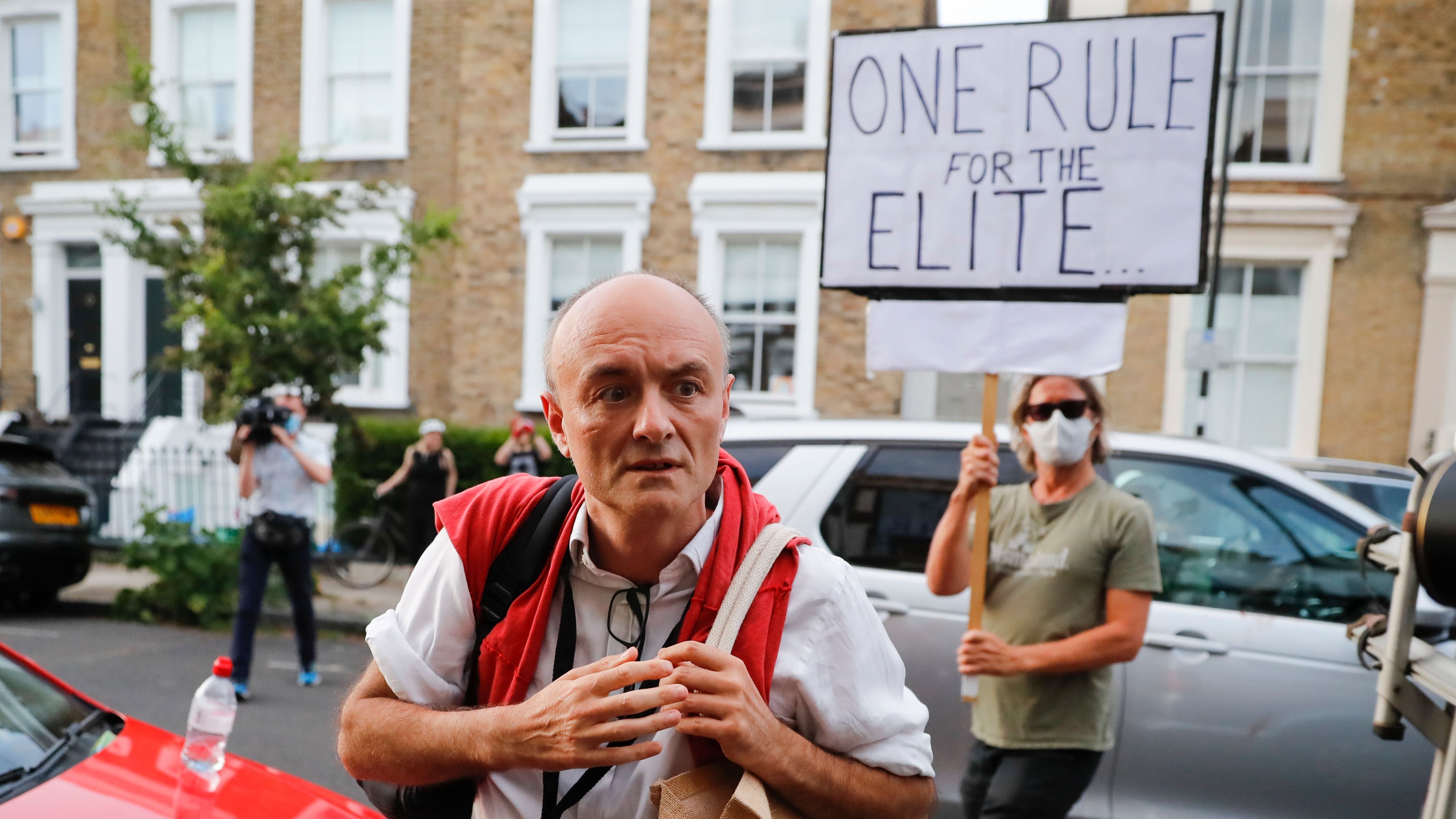Why Egypt is building a new capital city to replace Cairo
Government says nearly completed metropolis will be bigger and better - but is it a symbol of optimism or a cynical ploy?

A free daily email with the biggest news stories of the day – and the best features from TheWeek.com
You are now subscribed
Your newsletter sign-up was successful
Egypt is preparing to officially switch capital cities from Cairo to a totally new settlement just 30 miles away, in one of the most ambitious engineering and construction projects ever undertaken.
Cairo has been the capital since 950 AD and is the largest city in the Middle East. But with more than 20 million people now living in its greater metropolitan area, pollution and traffic have become major issues.
Indeed, Cairo is “bursting at the seams”, The Independent reports, adding that “something needed to be done”.
The Week
Escape your echo chamber. Get the facts behind the news, plus analysis from multiple perspectives.

Sign up for The Week's Free Newsletters
From our morning news briefing to a weekly Good News Newsletter, get the best of The Week delivered directly to your inbox.
From our morning news briefing to a weekly Good News Newsletter, get the best of The Week delivered directly to your inbox.
In March 2015, then-housing minister Mostafa Madbouly, now prime minister, announced that a new capital would be built from scratch.
“The idea to build the new city originated from our awareness that Cairo’s population will double in the next 40 years,” Madbouly said. “The master plan is to create a global city with smart infrastructure for Egypt’s future, which will provide a multitude of economic opportunities and offer a distinct quality of life.”
He added that the new city - which has yet to be named - would cover an area totalling 700 sq km (270 sq miles) east of Cairo, between the Nile River and Suez Canal, and would house up to five million people in 25 residential districts, where residents will enjoy “a better standard of living”.
Due to open next June, the new city will feature large green spaces, along with “a new parliament, a central bank, an airport, a presidential palace (eight times bigger than the White House), a business district, Africa’s tallest tower, both Egypt’s tallest minaret and church steeple, and a theme park bigger than Disneyland”, according to The Independent.
A free daily email with the biggest news stories of the day – and the best features from TheWeek.com
The overall cost of the new city has not been revealed, nor details about where the money is coming from, says The National.
Shortly after being elected president in 2014, President Abdel Fattah el-Sisi told Egyptian citizens to prepare for the “hard work phase” in their country’s recent history, to help the economy recover from the effects of the 2011 Arab Spring, reports CityMetric, an online arm of the New Statesman.
Echoing that sentiment, Khaled al-Husseini, the spokesperson for the new city project, says: “We have the right to have a dream.”
However, cynics have claimed that the biggest draw for the government is that it may not be footing the bill.
As CityMetric notes, Egypt’s leaders hired a Dubai-based real estate investment fund headed by Emirati Mohamed Alabbar, the man behind the Burj Khalifa skyscraper in Dubai, to raise funds for the project and build it.
-
 The Olympic timekeepers keeping the Games on track
The Olympic timekeepers keeping the Games on trackUnder the Radar Swiss watchmaking giant Omega has been at the finish line of every Olympic Games for nearly 100 years
-
 Will increasing tensions with Iran boil over into war?
Will increasing tensions with Iran boil over into war?Today’s Big Question President Donald Trump has recently been threatening the country
-
 Corruption: The spy sheikh and the president
Corruption: The spy sheikh and the presidentFeature Trump is at the center of another scandal
-
 How cybercriminals are hacking into the heart of the US economy
How cybercriminals are hacking into the heart of the US economySpeed Read Ransomware attacks have become a global epidemic, with more than $18.6bn paid in ransoms in 2020
-
 Language-learning apps speak the right lingo for UK subscribers
Language-learning apps speak the right lingo for UK subscribersSpeed Read Locked-down Brits turn to online lessons as a new hobby and way to upskill
-
 Brexit-hobbled Britain ‘still tech powerhouse of Europe’
Brexit-hobbled Britain ‘still tech powerhouse of Europe’Speed Read New research shows that UK start-ups have won more funding than France and Germany combined over past year
-
 Playing Cupid during Covid: Tinder reveals Britain’s top chat-up lines of the year
Playing Cupid during Covid: Tinder reveals Britain’s top chat-up lines of the yearSpeed Read Prince Harry, Meghan Markle and Dominic Cummings among most talked-about celebs on the dating app
-
 Brits sending one less email a day would cut carbon emissions by 16,000 tonnes
Brits sending one less email a day would cut carbon emissions by 16,000 tonnesSpeed Read UK research suggests unnecessary online chatter increases climate change
-
 Reach for the Moon: Nokia and Nasa to build 4G lunar network
Reach for the Moon: Nokia and Nasa to build 4G lunar networkSpeed Read Deal is part of the US space agency’s plan to establish human settlements on the lunar surface
-
 iPhone 12 launch: what we learned from the Apple ‘Hi, Speed’ event
iPhone 12 launch: what we learned from the Apple ‘Hi, Speed’ eventSpeed Read Tech giant unveils new 5G smartphone line-up
-
 Russian agency behind US election meddling ‘created fake left-wing news site’
Russian agency behind US election meddling ‘created fake left-wing news site’Speed Read Facebook says real reporters were hired by fake editors to write about US corruption